 The noted blogger Fjordman is filing this report via Gates of Vienna.
The noted blogger Fjordman is filing this report via Gates of Vienna.
For a complete Fjordman blogography, see The Fjordman Files. There is also a multi-index listing here.
My post about the
impact of Christianity on
Western culture generated some interesting comments. Several readers stated that Christianity
is flexible, unlike
Islam, and that the United States, perhaps still the most devoutly Christian of Western nations, also has the most dynamic military forces. And it was the Americans who dropped nuclear bombs on Hiroshima and Nagasaki, which hardly indicates that Christians have to
be soft.
The blogger
Vanishing American says she can’t count the number of Internet discussions she has seen blaming the “Camp of the Saints” invasion of the West on the feminizing impact of Christianity. She should note that The
Camp of the Saints by Jean Raspail does indeed describe how Christian leaders and bishops are at the forefront of surrendering Europe in the name of compassion, and this really is happening. Moreover, she says that “I cannot see how Christianity has been capable of instilling guilt in Europeans long after they have stopped believing in Christianity.”
This is an inaccurate view of the situation. Although some of the destructive ideas I mentioned earlier are not always directly related to Christianity, they have adopted certain aspects of Christianity or at least ideas derived from Christian cosmology. However, they have upset the balance, and the resulting secularized religions have become caricatures of the original, sometimes highly dangerous ones. These post-Christian political religions believe in human perfectibility. That sounds like an attractive proposition, but its track record shows that this ideal has caused a lot of pain in real life.
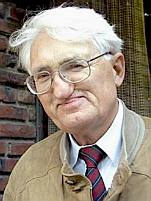
Some observers are aware of the fact that notions such as human rights are ultimately based in Christianity. I don’t always agree with the German philosopher
Jürgen Habermas, who does have some quirky ideas, but he is right when he says that “Christianity, and nothing else, is the ultimate foundation of liberty, conscience, human rights, and democracy, the benchmarks of Western civilization. To this day, we have no other options [than Christianity]. We continue to nourish ourselves from this source. Everything else is postmodern chatter.”
If we assume that Christian anti-Semitism is partly a reflection of a Christian Oedipus complex vis-à-vis its parent religion, Judaism, which is a plausible hypothesis, this opens up new perspectives on the hatred directed against Christianity by Multicultural, post-Christian Westerners. Since their creeds are secularized versions of Christian ideas, Christianity without Christ, some of them hate their parent religion, this outmoded and abrogated creed that still dares to exist.

According to Vanishing American, “Truly, liberalism in general, even the extreme secular brand of liberalism, is a sort of counterfeit Christianity. This has been pointed out many times. Karl Marx, the son of a Christian convert, was a nonbeliever, but whether consciously or not, the system he fathered was a parody of Christianity. Instead of looking to a kingdom not of this world, Marxism and its offshoots proposed to create a heaven on earth.” She also quotes scholar James Kurth, who has called the deformation of Christianity behind Multiculturalism “Protestantism without God.”
I’ve seen this claim before, that Multiculturalism is tied to Protestant culture. There could be some truth in this, but the Catholic Church is also
infected by this problem, and it has other challenges in that it is a bureaucratic institution that is first and foremost looking after its own interests. Since it is demographically speaking increasingly based in developing countries, it more and more resembles a Christian version of the United Nations. Although I would welcome it, I therefore question the Church’s ability to defend the West.
I understand what blogger
Conservative Swede means when he talks about European rather than Western civilization. When speaking about the West, we tend to include Protestants and Catholics, but not eastern, Orthodox Christians. But since the Roman Catholic Church is becoming one large religious NGO, it is increasingly difficult to say that it represents the West. As a Western European, I have more in common with a Serb or Bulgarian Orthodox than I have with a Catholic from Bolivia or a Protestant from Botswana.

As I’ve demonstrated elsewhere, cultural relativism in the West can be traced back at least to
the Enlightenment, perhaps to the Age of Exploration in the 16th century. However, there are even those who would claim to that its seeds date back prior to the Reformation. Humanists of the fifteenth century championed cultural criticism and presented their audience with a choice between a powerful past in ancient Italy and a corrupt and divided present. The most extreme strands of humanist thought led in the direction of repudiating Christianity altogether, and were personified by Machiavelli, who relied almost solely on Rome, very little on Jerusalem.
The Cambridge Companion to Renaissance Humanism by Jill Kraye explains it this way:
Their intimate knowledge of another culture, their habit of comparing that culture with their own age, their realism and their habit of arguing both sides of a question led in the end to an incipient form of cultural relativism. This is perhaps most obvious in the writings of the late humanist writer Michel de Montaigne, but signs of it can already be found in Petrarch. A major lesson of cultural relativism, of course, is that what one is in the habit of thinking of as a given of nature may in fact be a product of culture. And what belongs to culture, not nature, is within human power to change. Applied to the sphere of high culture, the will to reject tradition and embrace change can lead to a Renaissance; applied to the political sphere, it can lead to a Utopia.
The writer
Paul Gottfried says that Multiculturalism “travels in the baggage of the American empire, as was evident during the unprovoked attack on Serbia.” I agree with that. As a fully mature developed ideology it was exported from the USA, which acted as the Multicultural Empire in the case of Serbia in 1999, an ideological war to uphold Multicultural orthodoxy.
Gottfried also warns against a secular or Multicultural theocracy. He continues: “Mass democracy is a term used to describe a government that rules in the name of the ‘people’ but is highly centralized and operates increasingly without an ethnic-cultural core. It is a bureaucratic empire that distributes political favors and provides a minimal level of physical protection but is no longer capable of or interested in practicing self-government. (...) What happened is that, contrary to what nineteenth-century critics of democracy believed, universal suffrage and urbanization did not lead to the outbreak of anarchy and violent expropriation. Rather the people voted to hand over power to ‘public administrators’ and more recently in the U.S. judges, who became the agents for practicing democracy on our behalf. Democracy was not equated with meaningful self-rule but with being socialized by administrators, who taught us ‘equality’ and later, pluralism and multiculturalism. That mass democratic regime has turned progressively therapeutic, with the advent of the cult of victims and the degeneration of Christianity into a purveyor of the politics of guilt.”
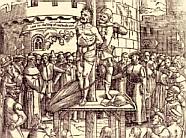
James Kurth calls this the “Protestant deformation,” which has paved the way for Multiculturalism. According to Gottfried, “At the heart of the problem is the transformation of justified spiritual guilt into social guilt and the Protestant focus on the individual into a rejection of membership in a shared civilization that needs to be preserved.”
- - - - - - - - - -
 But this confirms what I have said earlier. Our guilt complex does have its roots in Christianity, but it has been transformed into something else. Christianity believes in sin, but it also believes in forgiveness and redemption. According to the new post-Christian creed, we are told to feel vaguely guilty all the time for some unnamed sins. This makes us weak to resist attacks from outside because we will always feel that any act of aggression is justified. This guilt complex is destroying us, leaving us mentally disarmed in front of every enemy. Unlike in Christianity, where Christ sacrificed himself to wash away your sins, in this new Christianity without Christ, there is no possibility of redemption. And since it’s unbearable for us to live with this guilt for real or perceived past sins (again, a secularized version of the Christian concept of original sin), the only way we can free ourselves of this sin is to rid ourselves of our culture and everything that makes us “us.” We thus end up sacrificing ourselves. This secularized, post-Christian version of Christianity clearly isn’t sustainable. If left unchanged it will leave us powerless in front of Islam, and we will lose.
But this confirms what I have said earlier. Our guilt complex does have its roots in Christianity, but it has been transformed into something else. Christianity believes in sin, but it also believes in forgiveness and redemption. According to the new post-Christian creed, we are told to feel vaguely guilty all the time for some unnamed sins. This makes us weak to resist attacks from outside because we will always feel that any act of aggression is justified. This guilt complex is destroying us, leaving us mentally disarmed in front of every enemy. Unlike in Christianity, where Christ sacrificed himself to wash away your sins, in this new Christianity without Christ, there is no possibility of redemption. And since it’s unbearable for us to live with this guilt for real or perceived past sins (again, a secularized version of the Christian concept of original sin), the only way we can free ourselves of this sin is to rid ourselves of our culture and everything that makes us “us.” We thus end up sacrificing ourselves. This secularized, post-Christian version of Christianity clearly isn’t sustainable. If left unchanged it will leave us powerless in front of Islam, and we will lose.
 I’ve stated that post-Christian ideologies, arguably even Marxism, have expropriated ideas derived from Christian cosmology. However, they have been highly selective in which elements to use and which to discard. Christians believe in right and wrong, good and evil, something which Multiculturalists do not, except perhaps racism and discrimination, which are the only sins and one for which there can be no forgiveness. They have rejected crucial components of Christianity. Likewise, Socialists tend to view criminals as misguided individuals, at best in need of proper ideological guidance by Leftist social engineers, at worst as victims of society that should get an apology from us. They don’t believe in evil, except perhaps in those who reject their ideological guidance and wisdom.
I’ve stated that post-Christian ideologies, arguably even Marxism, have expropriated ideas derived from Christian cosmology. However, they have been highly selective in which elements to use and which to discard. Christians believe in right and wrong, good and evil, something which Multiculturalists do not, except perhaps racism and discrimination, which are the only sins and one for which there can be no forgiveness. They have rejected crucial components of Christianity. Likewise, Socialists tend to view criminals as misguided individuals, at best in need of proper ideological guidance by Leftist social engineers, at worst as victims of society that should get an apology from us. They don’t believe in evil, except perhaps in those who reject their ideological guidance and wisdom.
Marxists substituted God as the engine of history with the impersonal forces of class struggle, but their religion contains no afterlife. The reasons why Marxists find it easier to accept Islam than Christianity is first of all because they can continue their hatred for traditional Western culture under a different garb, but second of all because Islam, with its sharia and its desire to regulate all aspects of society in minute detail, has stronger emphasis on establishing its Paradise in this life as well, as opposed to Christianity.
 By claiming that post-Christian ideologies have adopted elements of Christian thought I am in no way implying that they are in any sense identical to Christianity, just as a kidney transplant from one individual to another doesn’t make the two bodies identical. It could be useful to think of them as a sort of ideological Frankenstein monster made up of haphazard combination of body part from a variety of sources, some of which in post-Christian Europe happen to be from the newly slain corpse of Christianity. Seeing the number of dead corpses in Socialist regimes, one could argue that the religion of Marxism more closely resembles the religion of the Aztecs, with its human sacrifice, than Christianity.
By claiming that post-Christian ideologies have adopted elements of Christian thought I am in no way implying that they are in any sense identical to Christianity, just as a kidney transplant from one individual to another doesn’t make the two bodies identical. It could be useful to think of them as a sort of ideological Frankenstein monster made up of haphazard combination of body part from a variety of sources, some of which in post-Christian Europe happen to be from the newly slain corpse of Christianity. Seeing the number of dead corpses in Socialist regimes, one could argue that the religion of Marxism more closely resembles the religion of the Aztecs, with its human sacrifice, than Christianity.
Michael W. Perry, author of the book Untangling Tolkien, left a blog comment stating that during the 20th century, a simplistic, moralistic pacifism replaced the Christian belief that, given the sinful nature of humanity, just wars were necessary. That’s why medieval Europe knew it had to fight Islamic invasions, while modern, secular Europe does not. One of the bloodiest naval battles in history was the Battle of Lepanto in 1571, fought to keep the Ottoman Empire from invading Italy and turning St. Peter’s in Rome into a mosque.
In the view of Mr. Perry, “it’s not Christian virtues that weaken Europe, it’s the warped continuation of some of those virtues in the total absence of others, particularly a deep and pervading sense of the nature of evil that means that it often can’t be fought by words, international institutions, or diplomacy. (...) Historically, Western Christianity benefited from the way it spread. Contact with Greek thought awakened it to ideas that Jews rarely wrestled with. Contact with Rome taught it how to deal with large, complex, cosmopolitan societies using structured government and the rule of law. (Israel had been small and agricultural.) And finally, contact with the heroic in Northern Europe helped to teach it individualism and the necessity to fight for freedom. You see that in Tolkien, who was devoutly Catholic.”
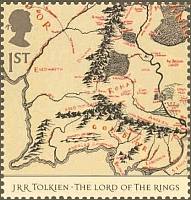 Tolkien was a deeply Western writer. Being a linguist by profession, he was fascinated with the languages of the Celtic tribes of the British Isles, especially Welsh, but also with Finnish, a non-Indo-European language radically different from the other tongues he was familiar with, and with the Kalevala, the national epos of Finland. He was preoccupied with the period of British history in between the downfall of Roman rule in the province of Britannia in the 5th century and the Norman Conquest in the 11th century. During the Migration Period, Germanic tribes from the east moved into Britain in large numbers. The epic poem Beowulf, to which Tolkien devoted considerable time, describes this culture in the 8th and 9th century at a time when Christianity was spreading, and mentions tribes from today’s Sweden and Denmark. The Kingdom of Rohan in The Lord of the Rings is clearly inspired by this Anglo-Saxon culture and its Scandinavian roots.
Tolkien was a deeply Western writer. Being a linguist by profession, he was fascinated with the languages of the Celtic tribes of the British Isles, especially Welsh, but also with Finnish, a non-Indo-European language radically different from the other tongues he was familiar with, and with the Kalevala, the national epos of Finland. He was preoccupied with the period of British history in between the downfall of Roman rule in the province of Britannia in the 5th century and the Norman Conquest in the 11th century. During the Migration Period, Germanic tribes from the east moved into Britain in large numbers. The epic poem Beowulf, to which Tolkien devoted considerable time, describes this culture in the 8th and 9th century at a time when Christianity was spreading, and mentions tribes from today’s Sweden and Denmark. The Kingdom of Rohan in The Lord of the Rings is clearly inspired by this Anglo-Saxon culture and its Scandinavian roots.
The names of characters such as Gandalf the wizard may be derived from Scandinavian examples, for instance the Saga of Halfdan the Black, who married Ragnhild, daughter of Harald Goldbeard, and fought against King Gandalf. Together they produced a son, Harald, who succeeded Halfdan as ruler around 860 and later earned the nickname Harald Fairhair. Following a rejected marriage proposal, he took a vow not to cut his hair until he was sole king of the entire country. He is traditionally regarded as Norway’s first national king. His successor Erik Bloodaxe later killed his brothers to get rid of rivals. This according to Heimskringla, the tales about Norwegian kings recorded by Icelandic writer Snorri Sturluson.
One highly interesting legacy from the Roman era is the border between England, which along with Wales was a part of the Empire, and Scotland, which was not. This border has remained more or less stable for two thousand years. Hadrian’s Wall in northern England was built by emperor Hadrian in AD 122 after his predecessor Trajan had conquered so many new territories, making the Empire reach its greatest territorial extent, that his successor needed to consolidate Roman rule. The intersection between Roman, Christian and Germanic influences had a decisive impact on the histories of England, France and Germany, respectively.
The Frankish ruler Charles Martel, after beating back the Muslim invasion at the Battle of Tours in 732, founded the Carolingian Empire, which bears his Latin name: Carolus. He also laid the foundations for the feudal system, and thus shaped much of the Middle Ages. His grandson Charlemagne was crowned Emperor in the year 800 by the Pope. The Carolingian Empire, which was a deliberate attempt to revive the Roman Empire in the West, at this point encompassed France, Germany and much of Central Europe plus Italy down to Rome, but was divided into three parts in 843. The eastern third, with its heartland in today’s Germany, later became known as the Holy Roman Empire and lasted for another thousand years, one way or the other. This is somewhat ironic, given that most of Germany was never included in the original Roman Empire. After Roman forces were massacred by Germanic tribes at the Battle of the Teutoburg Forest year 9 A.D., the Romans never again made any serious attempts to conquer the lands north of the Rhine.
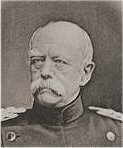 In England and France, the memory of centuries under centralized Roman rule never totally disappeared, which could help explain why the English and the French managed to create unified states in the Middle Ages while Germany wasn’t unified until Bismarck in the late 19th century. This could arguably be due to geography as well in the case of England, but it is more difficult to explain why France and Germany, both part of the Carolingian Empire, went their separate ways without taking the Roman legacy into account.
In England and France, the memory of centuries under centralized Roman rule never totally disappeared, which could help explain why the English and the French managed to create unified states in the Middle Ages while Germany wasn’t unified until Bismarck in the late 19th century. This could arguably be due to geography as well in the case of England, but it is more difficult to explain why France and Germany, both part of the Carolingian Empire, went their separate ways without taking the Roman legacy into account.
 The unity of Germany was also upset by a religious conflict in the 11th and 12th centuries, at a time when the papacy asserted its power. Pope Urban II initiated the First Crusade in 1095. The Investiture Controversy, regarding who should have the right to appoint church officials, broke the authority of the German king. The Thirty Years’ War in the 17th century left the Empire further in shambles. Thereafter, it existed in name only. In the play Faust, written at the end of the 18th and beginning of the 19th century, the German author Goethe briefly mocked its powerlessness, but the Empire wasn’t formally abolished until the Napoleonic Wars. Following Germanic traditions, the Emperors had to be elected and gave concessions in order to win favors, which weakened their authority. Still, some families such as the House of Habsburg dominated the list of emperors for centuries. They also dominated the successor to the Holy Roman Empire, the Austrian Empire, which later merged into the dual monarchy of Austria-Hungary until it was dissolved after World War I.
The unity of Germany was also upset by a religious conflict in the 11th and 12th centuries, at a time when the papacy asserted its power. Pope Urban II initiated the First Crusade in 1095. The Investiture Controversy, regarding who should have the right to appoint church officials, broke the authority of the German king. The Thirty Years’ War in the 17th century left the Empire further in shambles. Thereafter, it existed in name only. In the play Faust, written at the end of the 18th and beginning of the 19th century, the German author Goethe briefly mocked its powerlessness, but the Empire wasn’t formally abolished until the Napoleonic Wars. Following Germanic traditions, the Emperors had to be elected and gave concessions in order to win favors, which weakened their authority. Still, some families such as the House of Habsburg dominated the list of emperors for centuries. They also dominated the successor to the Holy Roman Empire, the Austrian Empire, which later merged into the dual monarchy of Austria-Hungary until it was dissolved after World War I.
As these examples show, the memory and the legacy of Rome never quite left us, even into the modern age. Islam became a world religion by creating an empire though war. Christianity became a world religion by being born into and growing within an already established empire, the Roman Empire. Christianity was influenced by Roman civilization from the very beginning and would probably have been impossible without it. I do see potential problems with Christianity as such. Yet since it is flexible, it is colored by what other impulses it is combined with, which is why I do not agree with those who say that we have to get rid of Christianity in order to survive. Realistically though, it contains potential flaws that need to be contained by adherence to nations and by balancing them out with emphasis not only on Greek logic, but also Roman strategic skills.
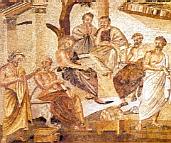 The West has always been a composite civilization, comprised of a complicated mix of different impulses. We will need all of them to survive. Relaying on just one isn’t enough. We need both Rome and Jerusalem, both the Greco-Roman and the Judeo-Christian strands of the West, but maybe we need to strike a new balance between the two. The crucial question is whether Christianity, at least in Western Europe, has already been so weakened and discredited that it has been removed as a significant factor.
The West has always been a composite civilization, comprised of a complicated mix of different impulses. We will need all of them to survive. Relaying on just one isn’t enough. We need both Rome and Jerusalem, both the Greco-Roman and the Judeo-Christian strands of the West, but maybe we need to strike a new balance between the two. The crucial question is whether Christianity, at least in Western Europe, has already been so weakened and discredited that it has been removed as a significant factor.

P.S.: Regarding civilizations and religion, China also provides an interesting example. According to scholar Thomas T. Allsen, “In addition to the commercial goods, mainly silk, coming west, many cultural wares, from folklore motifs to alphabets and religions, moved eastward. Almost all of the major religious movements originating in the Middle East — Zoroastrianism, Judaism, Christianity, Manichaeanism, and Islam — reached China, while Chinese ideological systems made no inroads in the West. This intriguing and persistent pattern, which has never been explained, was apparently established quite early.”
As Allsen points out, too often we “equate political and economic superiority with cultural dominance. There are many examples to the contrary. As Braudel points out, England emerged in the eighteenth century as the premier political power but France retained and even extended its cultural influence. This is true of Roman cultural reliance on the Greeks and the Achaemenid [Persian] dependence on Mesopotamia. Consequently, it is no anomaly that the Mongols of the thirteenth and fourteenth centuries were certainly dominant in the political and military spheres but hardly in the cultural.”
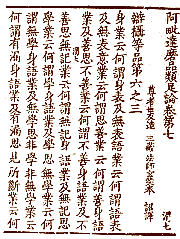 China, despite having a reputation as a proud civilization, has historically proved more willing to accept non-Chinese religions than vice versa. Christianity isn’t native to Europe either, it came from the Middle East. But at least it was a part of the same empire and political entity at that time, so it was still a “Roman” religion. Buddhism was not in any way native to China. Silk was known to Julius Caesar, and the silk trade with Rome grew rapidly from the reign of Augustus. Chinese trade with Iran and India had been established much earlier. Yet despite the popularity of Chinese goods, and despite the fact that China is one of the oldest continuous civilizations on earth, and for several thousand years also was one of the wealthiest and most technically advanced, its religions and philosophies never had a large impact outside of East Asia.
China, despite having a reputation as a proud civilization, has historically proved more willing to accept non-Chinese religions than vice versa. Christianity isn’t native to Europe either, it came from the Middle East. But at least it was a part of the same empire and political entity at that time, so it was still a “Roman” religion. Buddhism was not in any way native to China. Silk was known to Julius Caesar, and the silk trade with Rome grew rapidly from the reign of Augustus. Chinese trade with Iran and India had been established much earlier. Yet despite the popularity of Chinese goods, and despite the fact that China is one of the oldest continuous civilizations on earth, and for several thousand years also was one of the wealthiest and most technically advanced, its religions and philosophies never had a large impact outside of East Asia.
Why?
I don’t know, but it’s an intriguing question.
 Bloggers are the modern equivalent of the pamphleteers of the 18th century. We’re facilitating a conversation and a communication that would otherwise not occur. Most of us are doing this for little or no money, and some are taking great risks in the process.
Bloggers are the modern equivalent of the pamphleteers of the 18th century. We’re facilitating a conversation and a communication that would otherwise not occur. Most of us are doing this for little or no money, and some are taking great risks in the process. But the evidence is that it was much more than that.
But the evidence is that it was much more than that.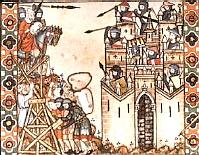 This song is from the album 24 Carrots, which was out of print for many years, but has recently been re-released.
This song is from the album 24 Carrots, which was out of print for many years, but has recently been re-released.
 Bat Ye’or is one of the best-known counterjihad writers in the world. She has gained a place in history with her writings about the history of Islamic aggression against non-Muslims, for her studies of the condition known as dhimmitude, and for coining the term “Eurabia” for a Europe in thrall to its Third-World Muslim immigrants.
Bat Ye’or is one of the best-known counterjihad writers in the world. She has gained a place in history with her writings about the history of Islamic aggression against non-Muslims, for her studies of the condition known as dhimmitude, and for coining the term “Eurabia” for a Europe in thrall to its Third-World Muslim immigrants.

 Norway’s center-left government unveiled a list of 14 emergency measures they’re putting into place immediately, in an effort to keep girls from being sent out of the country for the procedure many describe as barbaric.
Norway’s center-left government unveiled a list of 14 emergency measures they’re putting into place immediately, in an effort to keep girls from being sent out of the country for the procedure many describe as barbaric.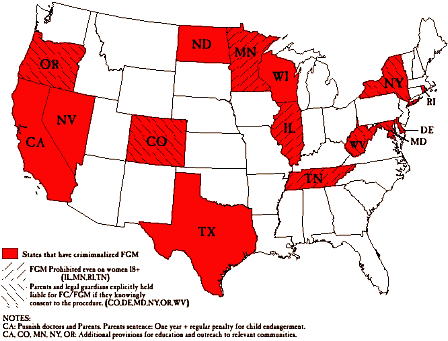
 I suppose it’s one way to pass the time while you wait for the thunder that will eventually come anyway. He’ll no doubt get his answer by way of a hurricane. And then there will be another petition for money - but this one will wend its way to the Federal government…you know, the other god. One handles death, the other does taxes.
I suppose it’s one way to pass the time while you wait for the thunder that will eventually come anyway. He’ll no doubt get his answer by way of a hurricane. And then there will be another petition for money - but this one will wend its way to the Federal government…you know, the other god. One handles death, the other does taxes.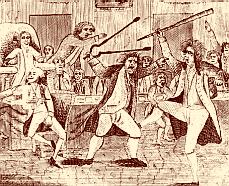 There's a lot of discussion in the blogosphere about the last two important Senate votes. The decisions on these two pieces of legislation are encouraging. Perhaps the Senate finally gets it: their closed club is under intense scrutiny by the American public. Not everyone mind you; just that part of the citizenry that votes.
There's a lot of discussion in the blogosphere about the last two important Senate votes. The decisions on these two pieces of legislation are encouraging. Perhaps the Senate finally gets it: their closed club is under intense scrutiny by the American public. Not everyone mind you; just that part of the citizenry that votes.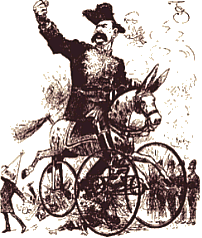 I’ve been blogging for almost three years now, so I’ve gotten used to writing every day. The engine stays warm and the gears are all greased up, so that I can crank out the rhetoric whenever I need it. I find a topic, churn out a rant, and then go back to my real job.
I’ve been blogging for almost three years now, so I’ve gotten used to writing every day. The engine stays warm and the gears are all greased up, so that I can crank out the rhetoric whenever I need it. I find a topic, churn out a rant, and then go back to my real job.
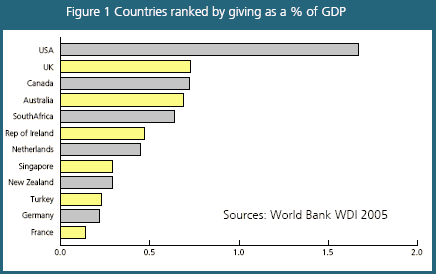

 Some observers are aware of the fact that notions such as human rights are ultimately based in Christianity. I don’t always agree with the German philosopher
Some observers are aware of the fact that notions such as human rights are ultimately based in Christianity. I don’t always agree with the German philosopher  According to Vanishing American, “Truly, liberalism in general, even the extreme secular brand of liberalism, is a sort of counterfeit Christianity. This has been pointed out many times. Karl Marx, the son of a Christian convert, was a nonbeliever, but whether consciously or not, the system he fathered was a parody of Christianity. Instead of looking to a kingdom not of this world, Marxism and its offshoots proposed to create a heaven on earth.” She also quotes scholar James Kurth, who has called the deformation of Christianity behind Multiculturalism “Protestantism without God.”
According to Vanishing American, “Truly, liberalism in general, even the extreme secular brand of liberalism, is a sort of counterfeit Christianity. This has been pointed out many times. Karl Marx, the son of a Christian convert, was a nonbeliever, but whether consciously or not, the system he fathered was a parody of Christianity. Instead of looking to a kingdom not of this world, Marxism and its offshoots proposed to create a heaven on earth.” She also quotes scholar James Kurth, who has called the deformation of Christianity behind Multiculturalism “Protestantism without God.” As I’ve demonstrated elsewhere, cultural relativism in the West can be traced back at least to
As I’ve demonstrated elsewhere, cultural relativism in the West can be traced back at least to  James Kurth calls this the “Protestant deformation,” which has paved the way for Multiculturalism. According to Gottfried, “At the heart of the problem is the transformation of justified spiritual guilt into social guilt and the Protestant focus on the individual into a rejection of membership in a shared civilization that needs to be preserved.”
James Kurth calls this the “Protestant deformation,” which has paved the way for Multiculturalism. According to Gottfried, “At the heart of the problem is the transformation of justified spiritual guilt into social guilt and the Protestant focus on the individual into a rejection of membership in a shared civilization that needs to be preserved.” But this confirms what I have said earlier. Our guilt complex does have its roots in Christianity, but it has been transformed into something else. Christianity believes in sin, but it also believes in forgiveness and redemption. According to the new post-Christian creed, we are told to feel vaguely guilty all the time for some unnamed sins. This makes us weak to resist attacks from outside because we will always feel that any act of aggression is justified. This guilt complex is destroying us, leaving us mentally disarmed in front of every enemy. Unlike in Christianity, where Christ sacrificed himself to wash away your sins, in this new Christianity without Christ, there is no possibility of redemption. And since it’s unbearable for us to live with this guilt for real or perceived past sins (again, a secularized version of the Christian concept of original sin), the only way we can free ourselves of this sin is to rid ourselves of our culture and everything that makes us “us.” We thus end up sacrificing ourselves. This secularized, post-Christian version of Christianity clearly isn’t sustainable. If left unchanged it will leave us powerless in front of Islam, and we will lose.
But this confirms what I have said earlier. Our guilt complex does have its roots in Christianity, but it has been transformed into something else. Christianity believes in sin, but it also believes in forgiveness and redemption. According to the new post-Christian creed, we are told to feel vaguely guilty all the time for some unnamed sins. This makes us weak to resist attacks from outside because we will always feel that any act of aggression is justified. This guilt complex is destroying us, leaving us mentally disarmed in front of every enemy. Unlike in Christianity, where Christ sacrificed himself to wash away your sins, in this new Christianity without Christ, there is no possibility of redemption. And since it’s unbearable for us to live with this guilt for real or perceived past sins (again, a secularized version of the Christian concept of original sin), the only way we can free ourselves of this sin is to rid ourselves of our culture and everything that makes us “us.” We thus end up sacrificing ourselves. This secularized, post-Christian version of Christianity clearly isn’t sustainable. If left unchanged it will leave us powerless in front of Islam, and we will lose. I’ve stated that post-Christian ideologies, arguably even Marxism, have expropriated ideas derived from Christian cosmology. However, they have been highly selective in which elements to use and which to discard. Christians believe in right and wrong, good and evil, something which Multiculturalists do not, except perhaps racism and discrimination, which are the only sins and one for which there can be no forgiveness. They have rejected crucial components of Christianity. Likewise, Socialists tend to view criminals as misguided individuals, at best in need of proper ideological guidance by Leftist social engineers, at worst as victims of society that should get an apology from us. They don’t believe in evil, except perhaps in those who reject their ideological guidance and wisdom.
I’ve stated that post-Christian ideologies, arguably even Marxism, have expropriated ideas derived from Christian cosmology. However, they have been highly selective in which elements to use and which to discard. Christians believe in right and wrong, good and evil, something which Multiculturalists do not, except perhaps racism and discrimination, which are the only sins and one for which there can be no forgiveness. They have rejected crucial components of Christianity. Likewise, Socialists tend to view criminals as misguided individuals, at best in need of proper ideological guidance by Leftist social engineers, at worst as victims of society that should get an apology from us. They don’t believe in evil, except perhaps in those who reject their ideological guidance and wisdom.  By claiming that post-Christian ideologies have adopted elements of Christian thought I am in no way implying that they are in any sense identical to Christianity, just as a kidney transplant from one individual to another doesn’t make the two bodies identical. It could be useful to think of them as a sort of ideological Frankenstein monster made up of haphazard combination of body part from a variety of sources, some of which in post-Christian Europe happen to be from the newly slain corpse of Christianity. Seeing the number of dead corpses in Socialist regimes, one could argue that the religion of Marxism more closely resembles the religion of the Aztecs, with its human sacrifice, than Christianity.
By claiming that post-Christian ideologies have adopted elements of Christian thought I am in no way implying that they are in any sense identical to Christianity, just as a kidney transplant from one individual to another doesn’t make the two bodies identical. It could be useful to think of them as a sort of ideological Frankenstein monster made up of haphazard combination of body part from a variety of sources, some of which in post-Christian Europe happen to be from the newly slain corpse of Christianity. Seeing the number of dead corpses in Socialist regimes, one could argue that the religion of Marxism more closely resembles the religion of the Aztecs, with its human sacrifice, than Christianity. Tolkien was a
Tolkien was a  In England and France, the memory of centuries under centralized Roman rule never totally disappeared, which could help explain why the English and the French managed to create unified states in the Middle Ages while Germany wasn’t unified until Bismarck in the late 19th century. This could arguably be due to geography as well in the case of England, but it is more difficult to explain why France and Germany, both part of the Carolingian Empire, went their separate ways without taking the Roman legacy into account.
In England and France, the memory of centuries under centralized Roman rule never totally disappeared, which could help explain why the English and the French managed to create unified states in the Middle Ages while Germany wasn’t unified until Bismarck in the late 19th century. This could arguably be due to geography as well in the case of England, but it is more difficult to explain why France and Germany, both part of the Carolingian Empire, went their separate ways without taking the Roman legacy into account. The unity of Germany was also upset by a religious conflict in the 11th and 12th centuries, at a time when the papacy asserted its power. Pope Urban II initiated the First Crusade in 1095. The Investiture Controversy, regarding who should have the right to appoint church officials, broke the authority of the German king. The Thirty Years’ War in the 17th century left the Empire further in shambles. Thereafter, it existed in name only. In the play Faust, written at the end of the 18th and beginning of the 19th century, the German author Goethe briefly mocked its powerlessness, but the Empire wasn’t formally abolished until the Napoleonic Wars. Following Germanic traditions, the Emperors had to be elected and gave concessions in order to win favors, which weakened their authority. Still, some families such as the House of Habsburg dominated the list of emperors for centuries. They also dominated the successor to the Holy Roman Empire, the Austrian Empire, which later merged into the dual monarchy of Austria-Hungary until it was dissolved after World War I.
The unity of Germany was also upset by a religious conflict in the 11th and 12th centuries, at a time when the papacy asserted its power. Pope Urban II initiated the First Crusade in 1095. The Investiture Controversy, regarding who should have the right to appoint church officials, broke the authority of the German king. The Thirty Years’ War in the 17th century left the Empire further in shambles. Thereafter, it existed in name only. In the play Faust, written at the end of the 18th and beginning of the 19th century, the German author Goethe briefly mocked its powerlessness, but the Empire wasn’t formally abolished until the Napoleonic Wars. Following Germanic traditions, the Emperors had to be elected and gave concessions in order to win favors, which weakened their authority. Still, some families such as the House of Habsburg dominated the list of emperors for centuries. They also dominated the successor to the Holy Roman Empire, the Austrian Empire, which later merged into the dual monarchy of Austria-Hungary until it was dissolved after World War I. The West has always been a composite civilization, comprised of a complicated mix of different impulses. We will need all of them to survive. Relaying on just one isn’t enough. We need both Rome and Jerusalem, both the Greco-Roman and the Judeo-Christian strands of the West, but maybe we need to strike a new balance between the two. The crucial question is whether Christianity, at least in Western Europe, has already been so weakened and discredited that it has been removed as a significant factor.
The West has always been a composite civilization, comprised of a complicated mix of different impulses. We will need all of them to survive. Relaying on just one isn’t enough. We need both Rome and Jerusalem, both the Greco-Roman and the Judeo-Christian strands of the West, but maybe we need to strike a new balance between the two. The crucial question is whether Christianity, at least in Western Europe, has already been so weakened and discredited that it has been removed as a significant factor.  China, despite having a reputation as a proud civilization, has historically proved more willing to accept
China, despite having a reputation as a proud civilization, has historically proved more willing to accept